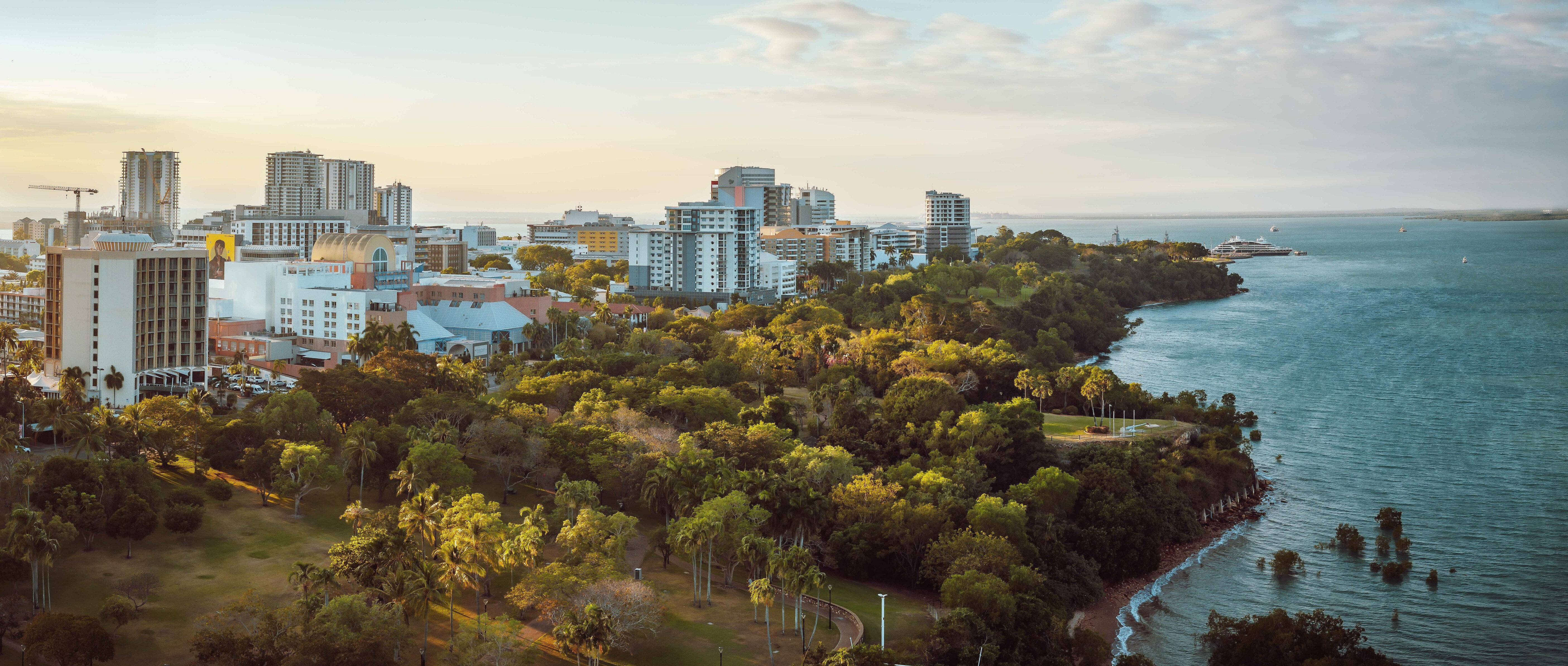Infrastructure Pipeline Strengthens the NT’s Appeal
.png?width=1080&height=565&name=Darwin%20CBD%20wesbite%20feature_Website%20feature%20image%20spec%20size%20(2).png)
For decades, Darwin’s commercial property sectors have offered investors returns they could only dream of in the more populous capital cities.
But what’s making the appeal of the Northern Territory even greater in 2024 is a longterm pipeline of infrastructure: an investment program that could bring employment-generating opportunities to Darwin that haven’t been seen since construction of the Ichthys LNG facility.
In the works for the region is:
- a record $5bn road funding commitment from the NT Government;
- $6bn worth of investment between the Australian and US governments for new and improved defence assets;
- $1.5bn to develop commercial grade facilities in Darwin suited for resources or manufacturing enterprises.
The programs follows-on from the recently completed $250m expansion of Charles Darwin University in the city’s skyline – completed in time to welcome international students back to Australia – and investigations into the feasibility to transport gas from Tennant Creek to Darwin.
Will Johnson, Managing Director of Herron Todd White in Darwin, said the city had been previously exposed to surges and drops in demand. However, the breadth and diversity of new additions in the area would add resilience to the market.
“The Darwin market hasn’t experienced the capital growth that other capital cities have seen,” said Mr Johnson.
“From an affordability perspective, Darwin is very accessible for investors.
"Good quality industrial assets are transacting on gross yields of 7.5%-8%, offering considerably higher returns than you’d find for comparable properties in the Eastern capital cities.
“Even with the works program in the pipeline, the supply of industrial property hasn’t kept pace. There'll be demand from gas and defence-related companies which will have an impact on the market. For a couple of million dollars, you can purchase a good quality industrial asset in Darwin.”
Mr Johnson said retail property assets were transacting at around 7.5% during Covid but yields have since softened to around 9%.
The office market in Darwin is unique in that the NT Government occupies about 65% of the market. “There's not a lot of vacant premium office space in the market,” said Mr Johnson.
LJ Hooker Commercial North NT Director Lee Doyle said enquiry had picked-up for commercial assets in the second half of 2023 and anticipated interest to grow further in 2024.
“Darwin’s always offered attractive returns, but economic activity is providing investors with greater confidence in the city and wider region,” he said.
“The infrastructure program will obviously generate employment in the Territory during delivery and add efficiencies to private operations once completed.”
Fellow Director Ryan Doyle added: “Businesses are positioning themselves to capitalise on the public investment in the region. For investors who are looking to enjoy excellent returns in a rising economy, Darwin is a great opportunity in 2024.”
Manufacturers accounted for almost a quarter of all new tenancies in smaller industrial properties in Western Sydney at the end of last year as small-scale production trends shifted.
Share

.png)

.png)